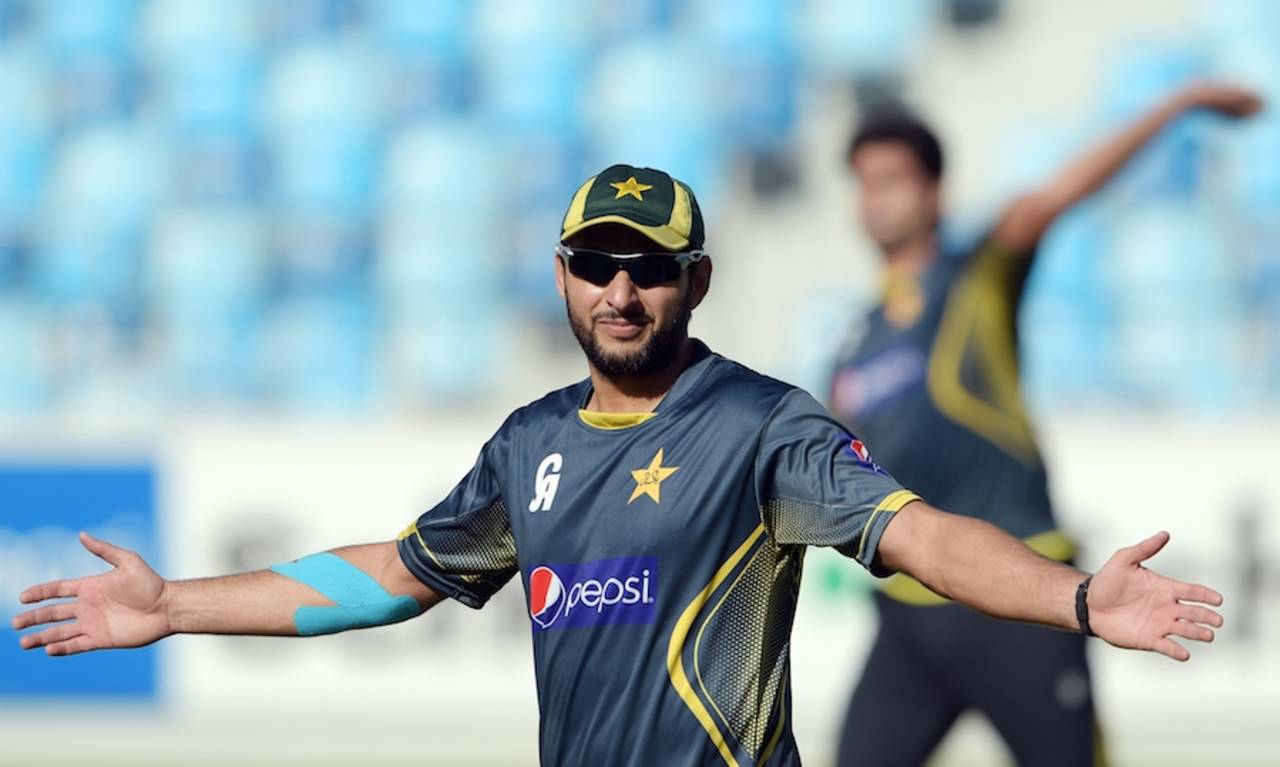The definitive guide on how to retire
Cricketer past his sell-by who's mulling the big decision? You've come to the right place
Andrew Hughes
Jan 7, 2015, 3:39 AM

Love means always only having to say au revoir • AFP
An international cricketer has to do many difficult things: promoting supermarkets, remembering which end of the bat to hold, talking to cricket journalists without being rude to them. But the hardest thing for an international cricketer to do is to retire.
Unless you're Shahid Afridi, retiring from international cricket is something you only get do once, and there are no retirement nets in which to hone your retiring technique. So to help them get it right first time, here is the Long Handle guide to packing it all in:
Timing
Like batting, retirement technique is all in the timing. You don't want to be too early, for example. Retiring from Test cricket at the age of 22 because you got an offer to appear in Series 27 of Celebrity Underwater Cobbling is unlikely to evoke global tributes or glowing career retrospectives.
Like batting, retirement technique is all in the timing. You don't want to be too early, for example. Retiring from Test cricket at the age of 22 because you got an offer to appear in Series 27 of Celebrity Underwater Cobbling is unlikely to evoke global tributes or glowing career retrospectives.
On the other hand you shouldn't be too late. The sound you want to hear from the assembled press is a gasp of shock, with perhaps a little wailing. If the reaction to your big announcement is silence, punctuated by embarrassed throat-clearing, then you've left it too late. A simple rule of thumb here is to watch some footage of Graham Gooch and Mike Gatting lumbering between the wickets on the 1994-95 Ashes Tour. If you look anything like them, then you may be overdue a retirement.
Keep it simple
Instead of keeping it simple by quitting all formats of the game at once, some players treat retirement like the end of a UN peacekeeping operation, withdrawing from operations in instalments, over a period of months.
Instead of keeping it simple by quitting all formats of the game at once, some players treat retirement like the end of a UN peacekeeping operation, withdrawing from operations in instalments, over a period of months.
This may help them stave off the early effects of arthritis and accustom them to the extra spare time, but it can be confusing for the rest of us. Even fanatical cricket fans only have limited space in the "Who's still a cricketer?" section of our brains, and players who take this approach risk overhearing conversations like this when taking the field:
Spectator A: Isn't that Player X?
Spectator B: Yes.
Spectator A: I thought he'd retired.
Spectator B: No, that was only from T20.
Spectator C: And one-day internationals.
Spectator B: I didn't know that.
Spectator D: I thought he was still playing one-day internationals.
Spectator C: No, he said he would be prepared to come out of semi-retirement if he was asked, but then he changed his mind, or they didn't pick him, one or the other.
Spectator D: Is it just me or has he put on weight?
Spectator B: Yes.
Spectator A: I thought he'd retired.
Spectator B: No, that was only from T20.
Spectator C: And one-day internationals.
Spectator B: I didn't know that.
Spectator D: I thought he was still playing one-day internationals.
Spectator C: No, he said he would be prepared to come out of semi-retirement if he was asked, but then he changed his mind, or they didn't pick him, one or the other.
Spectator D: Is it just me or has he put on weight?
Finish on a song
Cricketers are entertainers and they shouldn't forget that. Retirement should be an event. You may have spent your career mumbling apologetically into a microphone, but this is your moment. Be witty, be sarcastic, sing "My Way" if you must, but make it memorable.
Cricketers are entertainers and they shouldn't forget that. Retirement should be an event. You may have spent your career mumbling apologetically into a microphone, but this is your moment. Be witty, be sarcastic, sing "My Way" if you must, but make it memorable.
Giving notice of your retirement weeks in advance can help build up the occasion, but be careful. That may work for Sachin, but you aren't Sachin, and whilst people don't mind standing for a lap of honour, they're probably not up for a marathon of honour.
Don't come back
Fifteen years of providing us with entertainment earns a cricketer a certain amount of credit, which he cashes in upon retirement, in the form of generous tributes and positively spun career summaries. So if, six weeks later, he announces that he has thought it over and has decided to make a comeback, he may find he is not entirely well received.
Fifteen years of providing us with entertainment earns a cricketer a certain amount of credit, which he cashes in upon retirement, in the form of generous tributes and positively spun career summaries. So if, six weeks later, he announces that he has thought it over and has decided to make a comeback, he may find he is not entirely well received.
There's etiquette to retirement. You get a card, perhaps some gift vouchers to represent the fact that none of your colleagues know what you like, a cringe-making presentation, and in return, you go away. If you turn up for work the following Monday, you may find the goodwill has dissipated and furthermore that the next time you announce your retirement, the tributes will be a little half-hearted (see Afridi, S).
Andrew Hughes is a writer currently based in England. @hughandrews73